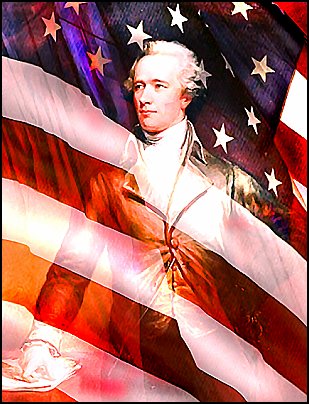
One may have to go all the way back to the founding of the United States to find a time when the established economic and political order was as threatened politically as Wall Street financiers, party leaders and Washington insiders find themselves today.
In the years following the Declaration of Independence, the former colonies operated as a loose collection of individual states governed by the Articles of Confederation. Experience with the British crown had ingrained such a deep distrust of centralized power that the former British subjects organized their governments around powerful state legislatures that shared radical democratic sentiments with their constituents.
As Isaac Kramnick noted in an introduction to the Federalist Papers, state legislators between 1776 and 1787 flooded their states with cheap money, passed radical debtor relief, promoted laws that set aside legal contracts, confiscated property at will and even stopped the repaying of debts.
Ron Chernow writes in his biography of Alexander Hamilton that "Hamilton fell prey to lurid visions that the have-nots would rise up and dispossess the haves. Men of property would be held hostage by armies of the indebted and unemployed."
Hamilton's great fear was that American democracy would be destroyed by demagogues who would "mouth populist shibboleths to conceal their despotism." His fears sound remarkably similar to those written today, from both the right and the left, about Donald Trump's ascent within the Republican Party. Conservative thought leaders who have always identified themselves as the intellectual descendants of Thomas Jefferson and James Madison need to reread Hamilton's contributions to the Federalist Papers. Like today's established elites who fear Trump and Bernie Sanders, Hamilton believed populism unchecked was the pathway to anarchy.
This post-revolution fever was broken by Shays' Rebellion, an armed uprising of poor debtors aimed at taking down the government of Massachusetts. It was a time that "the fate of America was suspended by a hair."
The rebellion was put down by February 1787, but George Washington, Madison and Hamilton had seen enough. Chernow writes that Washington's response to the rebellion and the rising calls for America's lands to be "the common property of all" was simply "Good G0D!" With Washington's backing, Hamilton and Madison began working toward a unifying constitution that would bind the states together and respect the rule of law.
The 2016 presidential race has challenged the established economic and political order of Wall Street and Washington in a way unparalleled in our lifetimes. Both Trump and Sanders have in their own ways shattered sacred economic ideologies that have lain at the foundations of their political parties for a generation.
Trump has heaped scorn upon those Republicans who have worshiped at the altar of unfettered free trade, while recently reversing course to call for higher taxes on the rich and higher wages for the working poor. Sanders has called for nothing less than a revolution. The Vermont senator seeks a restructured U.S. economy. Sanders doesn't talk just like a socialist; he is one.
There is no modern precedent for this type of disruption within political parties. As historian Jon Meacham has noted throughout this campaign season, this sort of political revolt from agitators like George Wallace, John Anderson and Pat Buchanan may begin within a party structure but ends up in a quixotic independent bid. The chaos of 1968 was outside in the streets of Chicago, not inside the framework of existing political parties. But in 2016, the two parties that have dominated U.S. politics for 150 years have been commandeered by pirates from outside the establishment. Too often, the captains navigating those ships have found their passengers cheering for those same pirates.
Hamilton, Madison and Washington regained control of their ship of state. Today's leaders seem less capable of controlling the mutiny rising in their midst.
Comment by clicking here.
Joe Scarborough, a former Republican congressman from Florida, hosts the MSNBC show "Morning Joe."



 Contact The Editor
Contact The Editor
 Articles By This Author
Articles By This Author